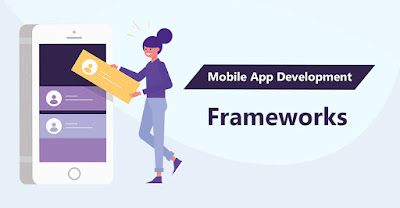Each and every business who invest in enterprise
mobility solutions want to know How can enterprise mobile
apps increase ROI? This is the main concern for the business.
Mobile apps play a very vital role in the growth
of your business and this is known to every business of all sizes. Now there is
a need to understand how exactly the ROI for enterprise mobility solutions is
calculated and how these mobile apps can Increase the ROI of your Business.
The Present State of Enterprise App
Like the world, the business domain is also
going mobile with the many perks that Enterprise mobility offers, the
present situation is that there are a number of companies that are finding
themselves getting behind their competition in the absence of an enterprise
application.
There is a need for introducing technology and
mobility to the workforce is something that is contributing to shaping the
enterprise mobility market to a phase of constant growth.
1. Enterprise Apps Increases Productivity
A survey held by Adobe found that more than 51%
of the respondents felt that the biggest advantage of enterprise applications
is the scope of high productivity that it brings. And 47% of people felt that
not having an enterprise application can make companies lose out potential
sales or new clients.
2. They Drive Growth and Revenue
It has been estimated that the enterprise market
is going to get in $240 billion revenue when we reach 2020, is something that
is modifying the market.
They are meant to solve the time
restrictions that are bought by jobs, employees and the teams, a lot of time
spent for the sake of research and company growth.
3. The Usage is Continuously Growing
High usage an adoption of enterprise mobility
solutions in business across industries are being brought by the benefit that
is being brought by apps.
It has been cleared, ho the enterprise app
market is forming, now its time to talk about what are the features of a good
enterprise application, and the time to talk about the various ways enterprise
apps’ ROI can be measured, and the ways you can increase the number.
But before we make a strategy of increasing the
ROI of an enterprise app, there is a need to understand what is important for
high ROI worthy enterprise application.
Features of an Efficient Enterprise App
As the software does promise of smooth
functioning but instead of this, there should be more that should go behind an
enterprise app that could be considered as efficient.
Let us look at what those features are:
1. Scalability
Scalability is one of the main features that
should be taken into consideration while talking about the enterprise app. The
enterprise mobility offering that you give should grow as your business grows
and even reduce if the team size gets small.
2. Real-Time Access
Real-time access is considered to be one of the
main reasons to bring enterprise on mobile. This whole idea was generated in
order to make it possible for the teams to view, download, upload, and share
information in real-time.
3. Security
There is a need for an enterprise app to
function around multiple sensitive data and information on the basis of every
time and this will require them to be 100% hack proof with minimal to zero
scopes of security breaches.
4. Heavy Integration
An enterprise app should avoid working as an
individual silo. There is a need for proper linking with emails, social media,
native call functionality, payment modules, etc. In fact, syncing it to other
devices can be of great help to – an event which has made wearables an
important part of the enterprise application development services. There is
only paper integration which can ensure the performance of the app.
5. Instant Conversation
Let’s focus on the last big feature of a
successful enterprise application which is the ease of instant, real-time
conversation. Your stakeholders should be given the ease to have real-time
conversations with everyone else using the application.
After meeting the various good features of
enterprise mobile
application development and play a contributory role in defining the
ROI of an enterprise application, it’s time to focus at the last thing to know
before we look into the ways to increase the return on investment that you are
able to garner – How to know the ROI that you are getting on today’s date.
How to Estimate the ROI of Your Enterprise App –
Insight from Appinventiv, a Leading Enterprise Software Development Company
Here is the time when we are going to share a
process that follows to help our business mobile app development clients know
what their apps’ ROI. The ideas to measure ROI for your enterprise apps
revolves around a three-step process.
The next stage is to measure the output the enterprise
app was able to deliver. And the way to do that is through enlisting
KPIs.
Here are some of the KPIs that can be used to
measure the effectiveness:
- Sales number
- Amount of paperwork
- Response time of field technicians
- Production Cost
Once you have the before and after numbers
against these and other KPIs, the time of the last stage comes.
The last stage of measuring Enterprise mobile
apps’ ROI is Calculating the ROI. Doing that will require you to weigh the
outcome against the investment made in developing the enterprise
application.


